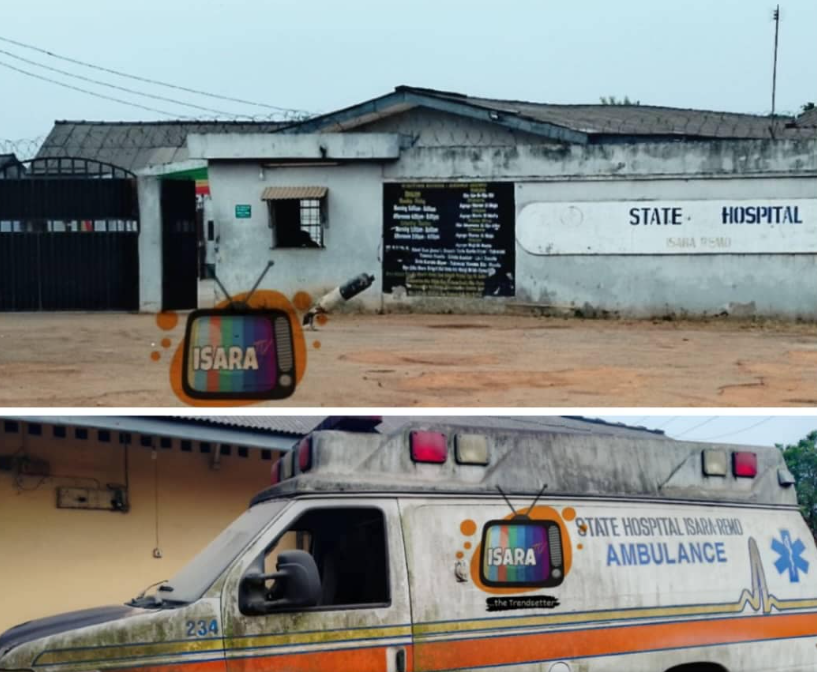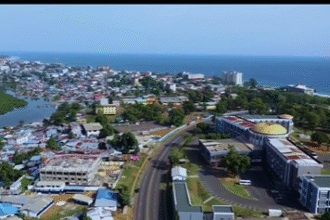By Isaac Okoro
Igbokofi, Ogun State, Nigeria – In a shocking indictment of Nigeria’s crumbling healthcare infrastructure, pregnant women from the rural community of Igbokofi in Ogun State are risking their lives by crossing the border into the neighboring Benin Republic to seek basic medical care. This desperate measure highlights the devastating consequences of years of neglect and lack of access to essential healthcare services in the region.
Igbokofi, despite being located just a few hours away from Lagos, Nigeria’s bustling commercial capital, is plagued by a stark absence of functional healthcare facilities. Residents recount harrowing tales of loss and suffering, painting a grim picture of a community where childbirth has become a life-threatening ordeal.
Folake Olaniyi, a resident of Igbokofi, shared her tragic experience from 2017, where the absence of a functional health facility led to the stillbirth of her son and severe damage to her own health. “When it was time to deliver, I went to the place they use as a health centre, but I was told to go back because I wasn’t in active labor yet,” she recounted. After a nightmarish journey to multiple ill-equipped facilities, her baby was delivered stillborn, and she suffered life-threatening blood loss. Her womb was later removed due to the damage sustained during the traumatic delivery.
Elder Idowu Bamgbose, another resident, mourned the death of his son’s wife in 2021 during childbirth due to the lack of a proper medical facility. “My son’s wife died during labor simply because there was no proper medical facility here,” he lamented.
Kunle Garb echoed these sentiments, stating that the village has tragically become a “graveyard for many women who died during childbirth.” He decried the rise of untrained practitioners using unregulated methods for deliveries, highlighting the desperate situation where people choose between dangerous alternatives and nothing at all.
Faced with these dire circumstances, residents like Ruth Bamgbose, the village chief’s wife, revealed that many now cross the border into Benin Republic for medical attention. “We consider Benin Republic our medical safe haven,” she said. “We often have to go there just to get injections or buy basic drugs. It’s even closer than Ijoun or Abeokuta.” However, this comes at a cost, as the hospitals in Benin Republic reportedly charge Nigerians double the fees they charge their own citizens.
The situation in Igbokofi reflects a broader crisis in Nigeria’s healthcare system. In 2020, over 80,000 Nigerian women died from pregnancy-related complications. The country’s doctor-to-patient ratio is alarmingly low, and healthcare often receives inadequate funding. The maternal mortality rate remains unacceptably high, and a significant portion of the rural population lacks access to functional primary healthcare centers.
Mr. Ogunyomi, a former security officer at Igbokofi’s dilapidated health center, explained that the facility ceased functioning in 2008 due to a bat infestation and subsequent decay. Despite the construction of an alternative structure by the National Boundary Commission, it remains unused, leaving the community without a viable healthcare option.
The exodus of pregnant women from Igbokofi to Benin Republic serves as a stark reminder of the urgent need for improved healthcare infrastructure, increased funding, and better access to medical services in rural communities across Nigeria. Until these issues are addressed, women will continue to risk their lives in search of basic healthcare, and the tragic stories of Igbokofi will continue to be repeated.









